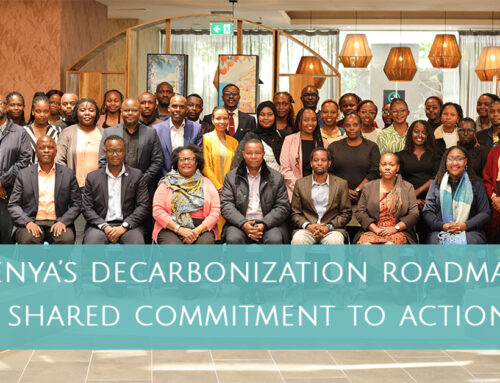[Report] India could scale up energy efficiency through residential buildings and retrofits
New Case Study Paper By the Economist Intelligence Unit and Global Buildings Performance Network Identifies Key Strategies for Scaling Up Efficiency of Buildings in India.

India doubled its floor area of buildings between 2001-2005 and is experiencing the fastest rate of growth in new building in the world. By 2050 India will have added about 35 billion m2 of new building floor area. To date, the efforts of India’s policymakers have focused on reducing energy consumption in new commercial buildings, but to achieve a significant scale will depend on efficiency measures becoming standard in the residential building segment. Residential building makes up 75% of India’s construction market yet until now has not been a priority for energy efficiency policy.
The potential for expanding and adapting existing energy-efficiency policies to the residential segment is tremendous.
These were some key findings from the Economist Intelligence Unit (EIU) report Achieving scale in energy-efficient buildings in India: A view from the construction and real estate sectors commissioned by the GBPN and in partnership with the World Business Council for Sustainable Development (WBCSD).
Other key findings from the report include:
- The key energy efficiency regulation for large commercial buildings in India, the Energy Conservation Building Code (ECBC) adopted in June 2007, is having an effect and experts say the true impact of the ECBC’s implementation may be greater than reported because some building owners are willing to simply secure energy savings rather than going through multiple procedures to become certified.
- Policymakers have prioritised the large commercial sector over India’s commercial mid-market and residential buildings segments. However, the Bureau of Energy Efficiency is now helping to draft some policies while the residential sector is starting to employ many best practices related to window design and building orientation.
- Consensus is growing among private and public sector leaders that the time has come to make India’s voluntary energy-efficiency code for commercial buildings mandatory. In fact, the government has already announced its intention to make the ECBC mandatory in all states during India’s current economic Five-Year Plan (2012-2017).
- Market forces such as the falling cost of materials are helping home builders overcome the perception that energy-efficient buildings are costly. Promotion of energy-efficient technologies by government regulators could further drive near-term demand until these technologies are in widespread use and, consequently, become less costly.
- Developers are less attracted by potential energy savings since these mostly benefit homeowners, so they would like to see more incentives for energy efficient residential construction. Legislative proposals are on the table to give builders tax cuts and other concessions for constructing energy-efficient buildings.
The time is ripe for the Indian government to rectify policy deficiencies and make energy-efficient building an attractive business with profit potential. By capitalising on India’s massive construction boom, the government can help achieve scale in energy-efficient buildings and slow the growth of CO2 emissions.
Analyses from experts of the GBPN network – Watch the video:
This Case Study report about India is a follow-up to the EIU global report published last October, Energy efficiency and energy savings – a view from the building sector.
Other formats of this report:
Multimedia: Analysis from the GBPN network – Watch the video
Also consult the October global report:
Energy Efficiency and Energy Savings: A View from the Building Sector, October 2012
Related News
- [Event] GBPN to Contribute in Two High-Profile Conferences in India, April 2013
- [Report] The Potential for Change in India: How to Achieve Deep Savings in Energy Consumption from Buildings and CO2 Mitigation
Related Report Bundles
Share This Story, Choose Your Platform!
Stay in touch with how we’re transforming the buildings sector
GBPN runs innovative building policy reform programs in key regions around the world that aim to tackle the climate emergency by decarbonising the buildings sector. Stay up to date with our newsletter.
Stay in touch with how we’re transforming the buildings sector
GBPN runs innovative building policy reform programs in key regions around the world that aim to tackle the climate emergency by decarbonising the buildings sector. Stay up to date with our newsletter.






